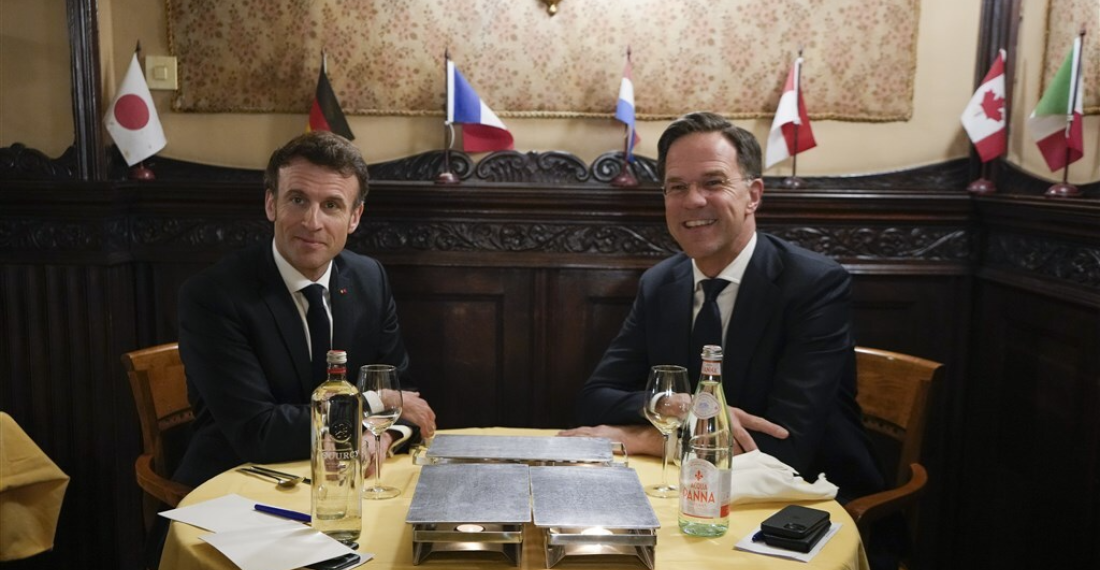The French President Emmanuel Macron, alongside economic and political stakeholders, is visiting the Netherlands on Tuesday (11 April) to push for a huge EU investment plan in line with the Commission’s Net-Zero Industry Act.
Accompanied by eight ministers and business representatives, including the CEOs of Engie and Air France/KLM, Macron will visit Amsterdam and The Hague under the banner of "European sovereignty in its economic and industrial dimension", according to the Élysée Palace.
Macron will meet the Dutch Prime Minister Mark Rutte, as well as the King and Queen of the Netherlands, and Dutch researchers and entrepreneurs in the first state visit of a French President to the Netherlands since Jacques Chirac's visit in 2000.
In particular, Macron will be pushing for the creation of a huge investment plan in line with the Net-Zero Industry Act proposed by the European Commission in mid-March, setting out an EU target of domestically producing at least 40% of the technology needed to achieve the bloc’s climate and energy targets by 2030.
This would involve investments in solar, wind, batteries and storage, as well as heat pumps, and nuclear, with the latter being the main focus of Macron's visit to the Netherlands.
The Netherlands is already an "observer" in the French-led "nuclear alliance" to promote nuclear’s credentials at the European level. In December last year the Netherlands announced that it plans to build two nuclear power stations in the southwestern province of Zeeland, with construction expected to start in 2028 and intended to generate between 9% and 13% of the country's total power generation by 2035.







